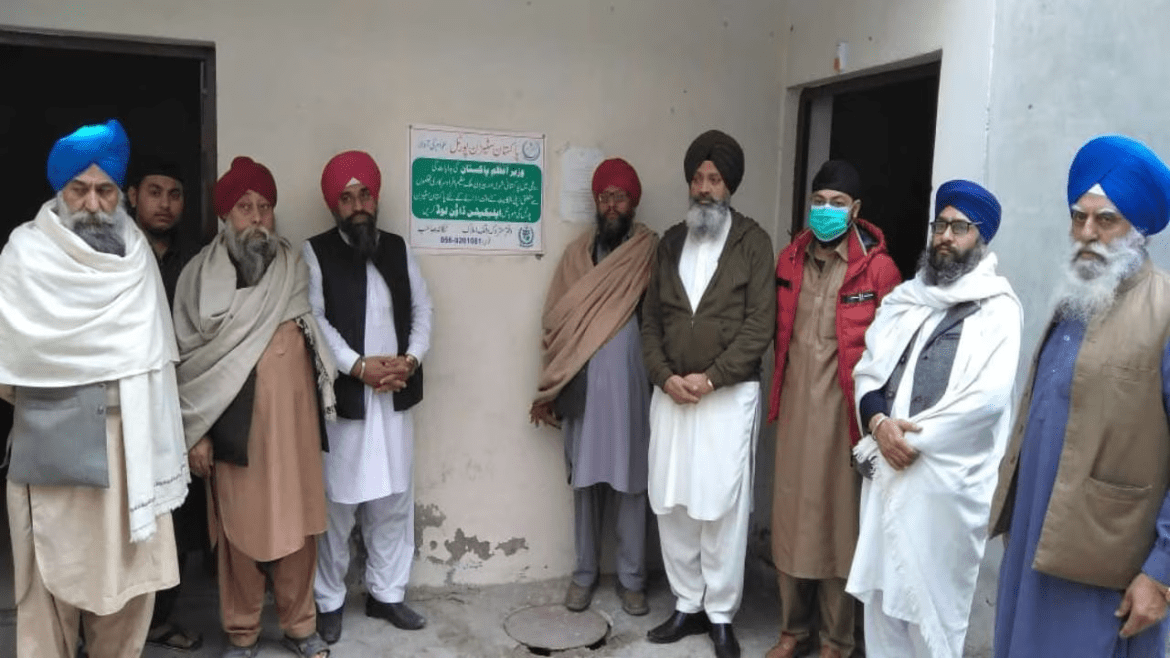AI Generated Summary
- The story of Lahore’s shrinking Sikh population is deeply troubling, but it is also a reminder of the resilience and strength of the human spirit.
- The declining state of the Sikh population in Lahore reflects a more significant trend of the marginalization of religious minorities in Pakistan.
- There must be more concrete action to address the underlying factors that have led to the decline of Lahore’s Sikh community, including poverty, discrimination, and lack of access to essential services.
Lahore, a city once famous for its vibrant Sikh community, has seen the number of Sikhs residing within its borders dwindle alarmingly over the last few decades. Once home to dozens of bustling gurdwaras, Lahore has become a shadow of its former self. With only a few hundred Sikhs left in the city, the community grapples with an uncertain future. This story needs to be told, and it is deeply relevant to our times.
The problem at its core is one of demographics. According to a 2019 report by the Pakistan Sikh Gurdwara Parbandhak Committee (PSGPC), approximately 70,000 Sikhs remain in Pakistan, most concentrated in Punjab’s provinces and Sindh. In Lahore, however, the numbers are shockingly low. Estimates suggest that there are just around 500-600 Sikhs left in the city, down from a high of several thousand in the early 20th century.
So what has caused this decline? The answer is complex but can be traced back to several factors. One of the most significant is the mass migration of Sikhs to India following the traumatic events of 1947 when India was partitioned and Pakistan was formed. Many Sikhs saw their lives and livelihoods uprooted in the violence and chaos that followed and chose to relocate to what was then their ancestral homeland. Lahore, once a hub of Sikh culture, suffered a severe blow due to this exodus.
Today, Lahore’s Sikh community faces a host of challenges that are contributing to its decline. One of the most pressing is poverty. Many Sikhs in Lahore struggle to make ends meet and live in abject conditions. They lack access to basic amenities such as clean water and electricity and often rely on handouts from charity organizations. This has made it difficult for them to maintain their cultural and religious practices, risking their identity.
Another issue is discrimination. Although Pakistan is a country that prides itself on its Muslim identity, it has a long history of mistreating its religious minorities. Sikhs in the country have faced discrimination and persecution for decades, with many being targeted for their religious beliefs. This has led to alienation and marginalization among Lahore’s Sikh community, further contributing to their decline.
The declining state of the Sikh population in Lahore reflects a more significant trend of the marginalization of religious minorities in Pakistan. The government is responsible for ensuring that all citizens’ rights, regardless of their faith, are protected. In addition, there must be more concrete action to address the underlying factors that have led to the decline of Lahore’s Sikh community, including poverty, discrimination, and lack of access to essential services.
On a global level, the issue of religious minorities is just as pressing. Across the world, we are seeing an increase in intolerance and discrimination against minorities, particularly religious minorities. We must recognize the value of diversity and strive to protect minority communities. As a world community, we must ensure that the rights of religious minorities are respected and upheld.
But there are signs of hope as well. Despite the challenges they face, many Sikhs in Lahore are coming together to fight for their rights and to preserve their heritage. There are several gurdwaras in the city where Sikhs come together to worship and celebrate, and these places are vibrant centres of community activity. The Nanakana Sahib Gurdwara, for example, attracts thousands of Sikhs from around the world each year, who come to pay their respects to the founder of their faith.
There are also signs that the government is beginning to take notice of the plight of Lahore’s Sikhs. The PSGPC has been working with the Pakistani government to try and secure better living conditions for the community and to protect their cultural heritage. The government has also announced plans to restore several historic gurdwaras in the city, which is a promising sign for the future.
The story of Lahore’s shrinking Sikh population is deeply troubling, but it is also a reminder of the resilience and strength of the human spirit. Despite the many obstacles they face, Lahore’s Sikhs are continuing to fight for their rights and to preserve their heritage. It is up to all of us to support them in this struggle and to recognize that the fate of Lahore’s Sikhs is a matter of concern for all of us.
The opinions expressed in this article are those of the author. They do not purport to reflect the opinions or views of Khalsa Vox or its members.




